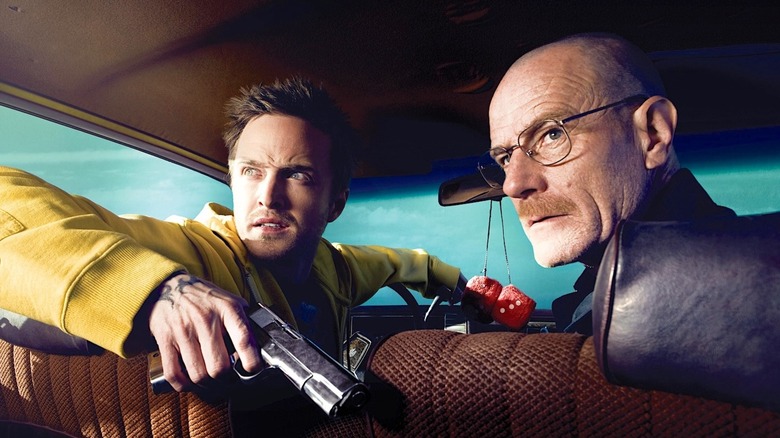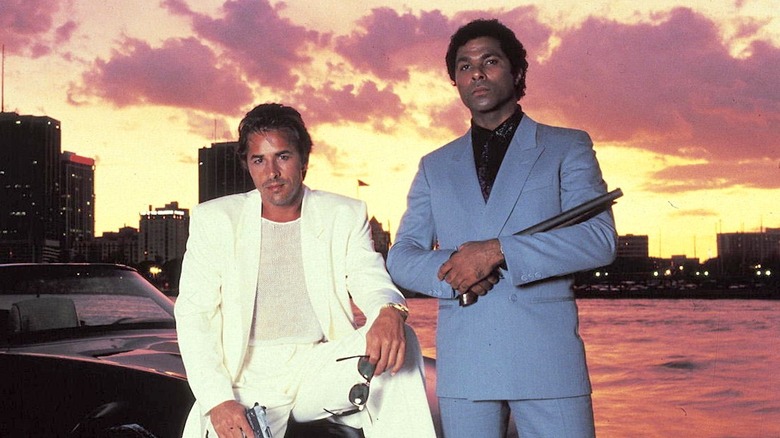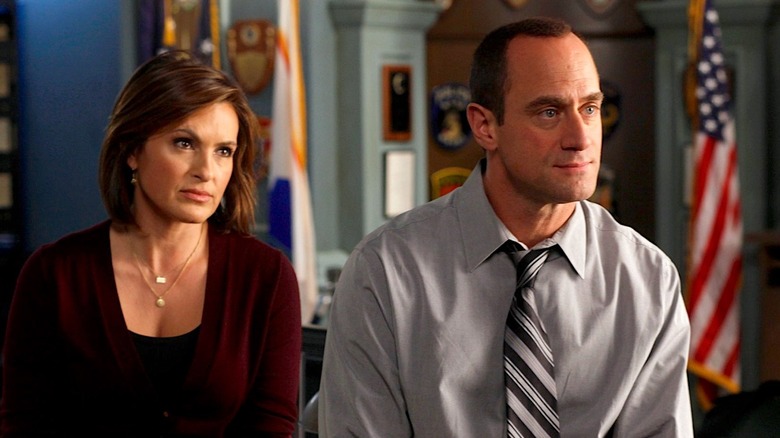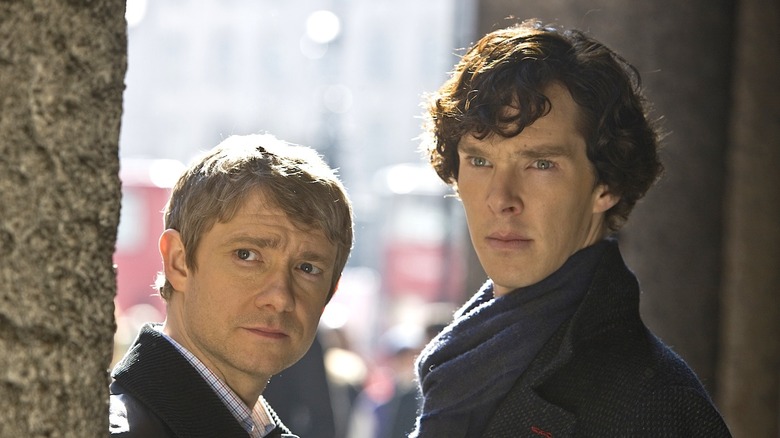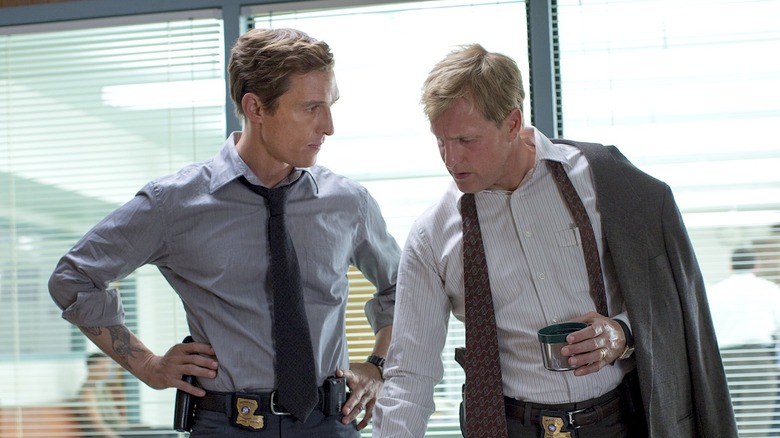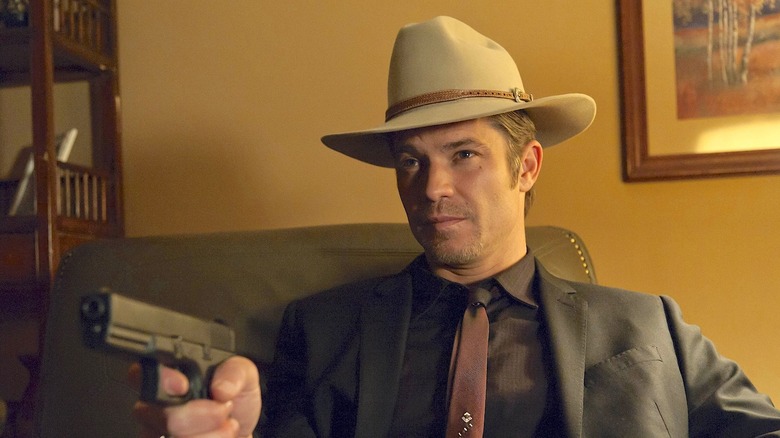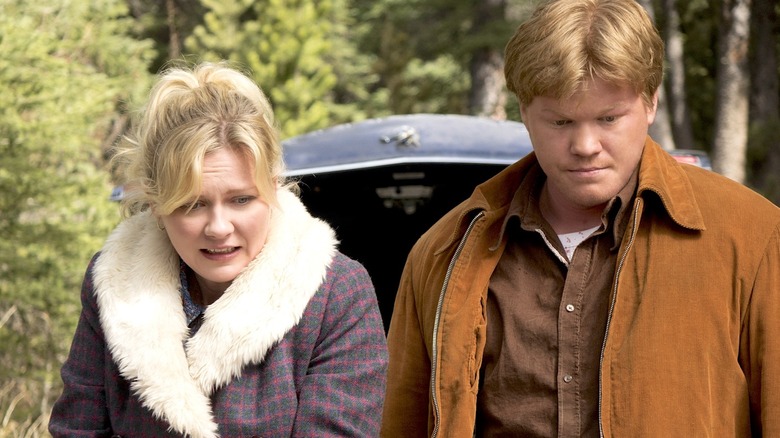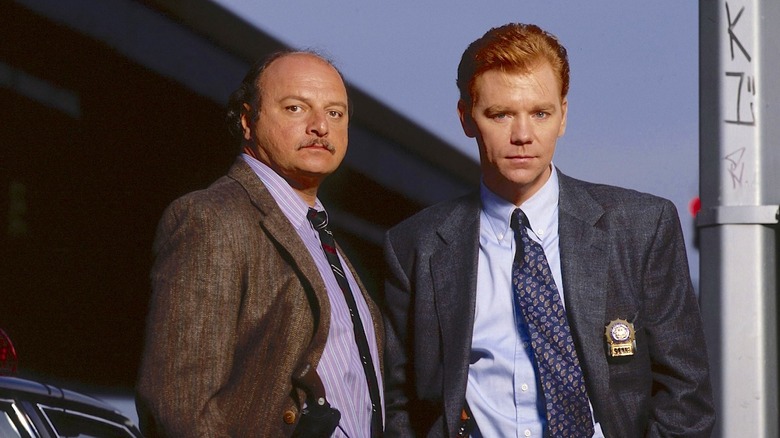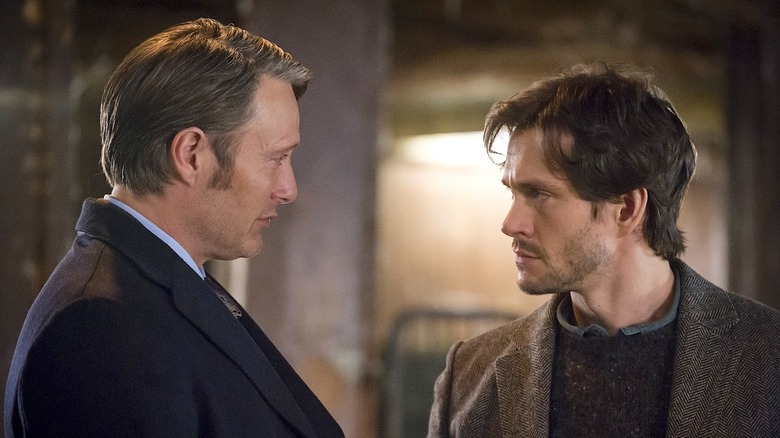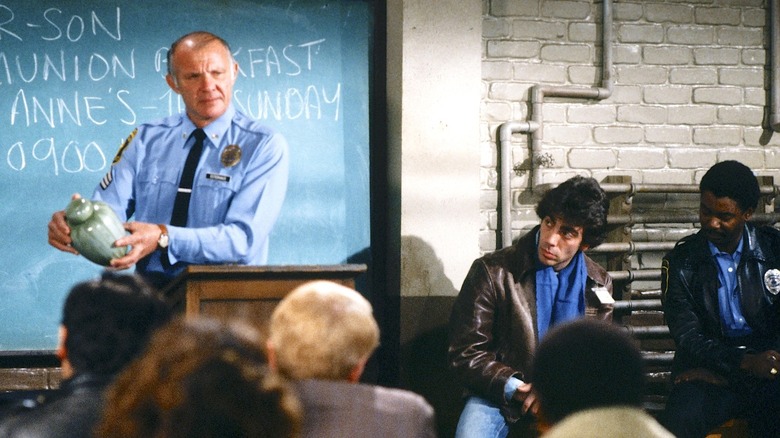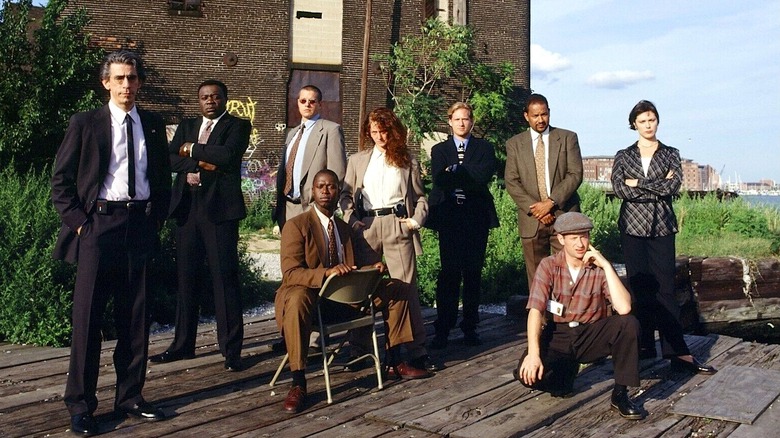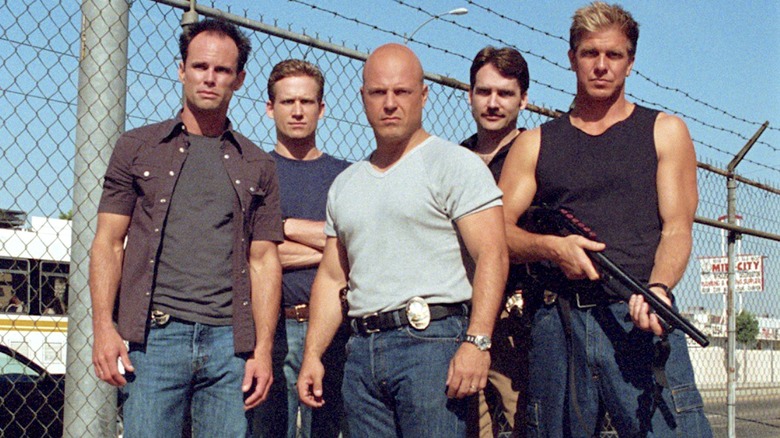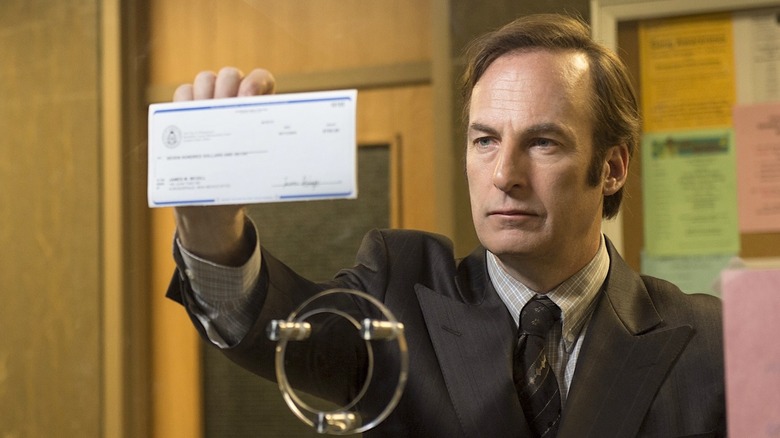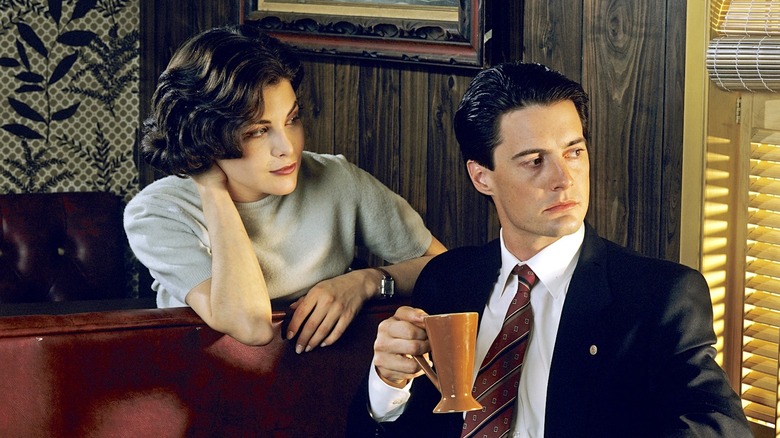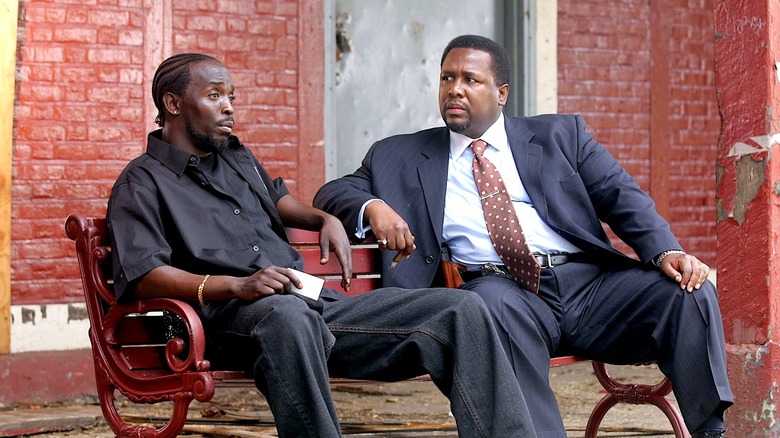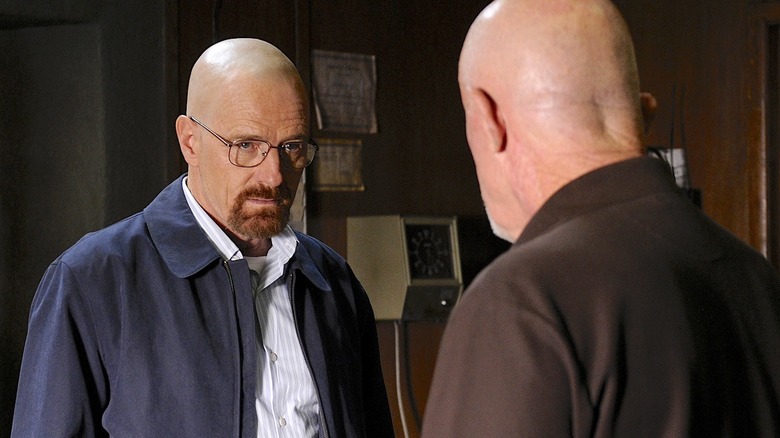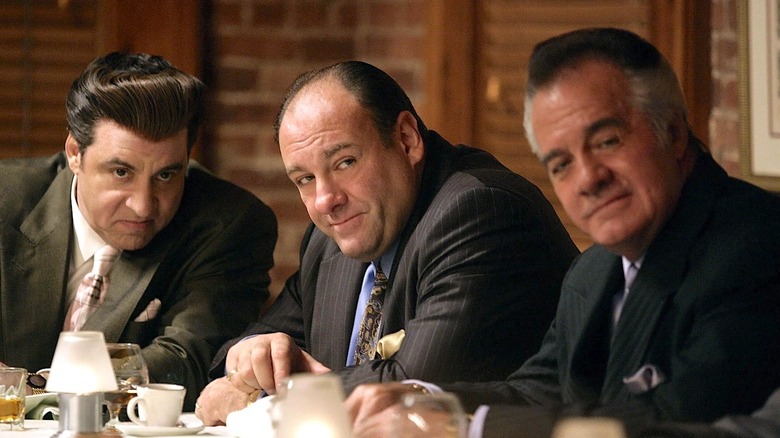15 Best TV Crime Dramas Of All Time, Ranked
Since TV first began, it's been telling us stories of cops, robbers, and all sorts of crime.
Crime dramas have been an essential part of TV lineups dating back to the 1950s, when Jack Webb was asking for "just the facts" as "Dragnet's" LAPD sergeant Joe Friday. We've always been fascinated by both sides of the law — the people who solve crimes, and the people who commit them — and crime dramas are tailor-made for high stakes and life-and-death conflict. That's why any list of the best TV crime dramas of all time includes some of the very best TV shows of all time, period.
We here at TVLine have decided to tackle the mammoth task of ranking the best TV crime dramas ever made — but first, let's be clear about what a "crime drama" entails. For our purposes, we're including shows where crimes, and the committing of them or the solving of them, are the central focus of the show. That excludes dramas like "Deadwood" and "The Americans" that may involve crimes, but are mainly classified in other genres. But that leaves us with plenty of cop shows to choose from, along with a few detective shows, organized crime shows, and genre-spanning dramas that kept us hooked for years.
Read on to see what made our list, and which TV crime drama ranked number one, and then hit the comments to let us know how you'd rank them — and which of your favorites we missed.
Honorable Mentions
A list of 15 can barely scratch the surface of all the great crime dramas that TV has served up over the years. So a few of our personal favorites didn't quite make the cut, but we still wanted to highlight them here.
Among those not making our final list: the effortlessly cool '80s icon "Miami Vice"; the lushly filmed gangster drama "Boardwalk Empire"; the haunting UK dramas "Broadchurch" and "Luther"; the perennially underrated cop show "Southland"; the riveting HBO miniseries "The Night Of"; Netflix's serial killer thriller "Mindhunter"; and our favorite sly detective, Peter Falk's immortal "Columbo." Any of these easily could've made our list, but the competition was stiff... and we like these 15 shows just a bit better.
15. Law & Order: Special Victims Unit (NBC, 1999-present)
Dun-dun! We originally thought we might honor NBC's original "Law & Order" on this list, but once we began to deliberate, we realized that "SVU" has actually surpassed the flagship in our eyes. Yes, it's surpassed it in longevity, with 580 (!) episodes and counting, trailing only "The Simpsons" among all American scripted primetime series ever. But it's also surpassed it in quality, with Mariska Hargitay's steadfast detective Olivia Benson leading the way.
"SVU" looks at the darker side of crime, with Benson and her team investigating "especially heinous" sex-based offenses that can be hard to watch. But seeing the victims get justice is enormously satisfying, and Hargitay has been joined by a stellar supporting cast including Ice-T, Kelli Giddish, and, of course, Christopher Meloni as fellow detective Elliot Stabler. (We still want to see these two get together, dammit.) It may not be a lighthearted watch, but like a great true crime story, "SVU" takes us to the very depths of humanity in order to show us the light.
14. Sherlock (PBS, 2010-17)
The twisted mysteries of genius detective Sherlock Holmes and his trusty partner John Watson have been fascinating readers since Sir Arthur Conan Doyle first put them into print more than a century ago. We've seen countless iterations of Sherlock and Watson on screen since, but PBS' contemporary take, starring Benedict Cumberbatch and Martin Freeman, broke through in a big way, thanks to fantastic performances, a cheeky sense of humor, and a modern touch that made Sherlock Holmes seem almost... sexy?
Cumberbatch infused the iconic sleuth with a brooding arrogance to go along with his big brain — we loved him anyway — and Freeman lent Watson more heart and backbone than we'd seen in previous versions. A pre-"Fleabag" Andrew Scott made a perfectly fiendish nemesis in Moriarty, and creators Steven Moffat and Mark Gatiss gave the dusty old stories a slick new sheen, pacing the mysteries like a pulse-pounding thriller. If you've read Doyle's stories, you knew how some of these mysteries would turn out... but in this modern form, it was still a blast to watch them unfold.
13. True Detective (HBO, 2014-present)
As an anthology, HBO's moody crime drama switches up its cast and storyline each season, which means the seasons can vary in quality — and they do vary wildly. Across its four seasons so far, "True Detective" has given us some of the very best TV of the past decade or so... and also some of the most laughable. On balance, though, the series has become a benchmark of hard-hitting storytelling and intricate characterization, reinvigorating the crime drama genre for a new generation.
Season 1, starring Matthew McConaughey and Woody Harrelson as Louisiana detectives tracking a serial killer, was a high-water mark, spinning a mesmerizing mystery with a creepy Gothic edge and giving us one of this century's most iconic TV performances in McConaughey's Rust Cohle. Season 2, though, was an abject failure, with Colin Farrell and Vince Vaughn spouting comically bad dialogue in an overbaked modern noir. But Season 3 bounced back, with Mahershala Ali delivering a powerful lead performance, and Season 4 rebooted the franchise — Issa López took over showrunner duties from creator Nic Pizzolatto — with Jodie Foster and Kali Reis investigating a mysterious disappearance in the frigid Alaska wilderness. We wouldn't call "True Detective" consistent, no... but we would call it great.
12. Justified (FX, 2010-15)
When looking back at the best crime dramas in TV history, we have to tip our hat to Timothy Olyphant's U.S. Marshal Raylan Givens, the unflappable hero at the heart of FX's neo-Western. Olyphant barely seemed to break a sweat as he collared bad guys in his native Kentucky, swaggering through crime scenes like John Wayne and cracking jokes in his slow Southern drawl. He was a man from another era, and we loved watching him bring his old-fashioned brand of justice to modern times — especially when he clashed with his nemesis Boyd Crowder, played by a dynamically weird Walton Goggins.
"Justified" took on new villains each season, and that allowed for some terrific performances, with the peak being Margo Martindale's unforgettable turn as Mags Bennett, the head of Season 2's Bennett crime family. (That season also introduced us to a young Kaitlyn Dever as street-smart teen Loretta McCready.) Showrunner Graham Yost's whip-smart, hard-boiled scripts powered "Justified" to a healthy six-season run, wrapping up with a perfect final meeting between Raylan and Boyd, with the latter wistfully declaring, "We dug coal together." We all did, watching "Justified"... and we enjoyed it, too.
11. Fargo (FX, 2014-present)
Like "True Detective," FX's quirky crime anthology starts fresh each season with a new cast and story. But "Fargo's" success rate has been much higher across its five seasons, establishing itself as one of the very best TV shows of the past decade. Showrunner Noah Hawley has pulled off nothing less than a showbiz miracle here, turning an all-time great movie into a great TV series, taking the Coen brothers' signature pitch-black comedic tone and building out a vast universe of good-hearted cops and ruthless criminals, all set in the snowy, aw-shucks land of Minnesota Nice.
We all have our favorite season of "Fargo" — for us, it's Season 2, with Kirsten Dunst headlining a wild '70s crime saga that was so compelling, we didn't even mind the UFO — but really, each season has its distinct pleasures, from Billy Bob Thornton's coldhearted killer Lorne Malvo in Season 1 to Juno Temple's plucky housewife Dot Lyon in Season 5. It all boils down to a formula of shocking crimes and catastrophically bad decisions, but the formula works — and if you'd ask us if we're waiting for another season? Oh yah, you betcha.
10. NYPD Blue (ABC, 1993-2005)
People often trace the start of prestige TV to the rise of HBO and pay cable around the turn of the century. But a handful of daring network TV shows in the '90s laid the groundwork for the Emmy winners of the future, like ABC's highly influential cop show "NYPD Blue." Groundbreaking and boundary-pushing, "NYPD Blue" brought unprecedented levels of nudity and foul language to network TV — some local affiliates even bailed early on — along with jittery, handheld camerawork that added a palpable urgency to every scene.
But it wasn't all flash and no substance: Creators Steven Bochco (who similarly broke ground in the '80s with "Hill Street Blues") and David Milch bent the conventions of the TV cop drama to bring a new level of unfiltered realism to the genre. The stories were fairly conventional cop show fare, but the writing was sensational, and so were the performances, highlighted by Dennis Franz as volatile detective Andy Sipowicz, a forerunner of TV's antihero boom. "NYPD Blue" eventually ran for 12 seasons, winning a slew of awards along the way, and its legacy of gritty authenticity lives on to this day.
9. Hannibal (NBC, 2013-15)
Hungry? NBC's beautifully bloody thriller could either jump-start your appetite or get rid of it completely, depending on the scene. "Silence of the Lambs" was a tough act to follow, but showrunner Bryan Fuller managed to find fresh inspiration in iconic killer Hannibal Lecter, crafting a gorgeous, gory masterpiece of psychological horror that still has fans craving more to this day. It helped that he found an ideal Hannibal in Mads Mikkelsen, bringing out a seductive side in the famed villain, and paired him with Hugh Dancy's tortured FBI profiler Will Graham, setting up a hypnotic game of cat-and-mouse that we never wanted to end.
"Hannibal" actually played like a standard police procedural in Season 1, with Will helping the feds investigate a string of gruesome murders. But Dr. Lecter was waiting in the wings, cooking up delectable meals by day while committing unspeakable acts by night. He and Will embarked on a fascinatingly strange relationship that was somewhere between blood rivals and secret lovers, and it only got stranger (and bloodier) as the series went on. "Hannibal" was always an odd fit as a network TV show, and it met an untimely end after three seasons. But the taste of it, like nothing else on TV before or since, still lingers in our memories.
8. Hill Street Blues (NBC, 1981-87)
If "NYPD Blue" was a precursor to prestige TV, then Steven Bochco's earlier NBC cop drama was the precursor to the precursor. The granddaddy of modern TV cop dramas, "Blues" created a sturdy template that's been followed by just about every cop show in the past four decades. Set in a squad room full of dedicated cops who worked to keep the city streets clean, it didn't rely on shootouts and car chases, instead focusing on unglamorous grunt work and thorny moral dilemmas.
What it lacked in glamour, though, it made up for in innovation, incorporating new storytelling methods like handheld cameras, a sprawling ensemble cast, and serialized arcs that later became standard on TV dramas. Emmy voters were impressed, too: "Hill Street Blues" won a then-record eight Emmys for its freshman season and went on to win four straight Emmys for best drama series. It might be just a distant memory in TV fans' minds these days, but the cop shows we enjoy today wouldn't be the same without it.
7. Homicide: Life on the Street (NBC, 1993-99)
Peacock's recent addition of all seven seasons of this NBC cop drama gave TV fans a reason to celebrate, since a new generation of fans could now enjoy the hard-hitting stories that came out of the Baltimore police department's homicide division. With an impeccable pedigree — David Simon wrote the book the show is based on, with Tom Fontana and Barry Levinson among the executive producers — "Homicide" got even grittier than "NYPD Blue" dared to, delivering a bleak but authentic slice of life as a big-city homicide detective.
It also introduced audiences to the talents of Andre Braugher, who shined as fiery detective Frank Pembleton. "Homicide" went back to basics, giving us stark, stripped-down episodes like Pembleton and a colleague interrogating a suspect for an hour, relying on just the writing and the acting to keep us riveted. (And they did.) With its unsparing look at a justice system that was hardly ever just, "Homicide" was brave enough to let the good guys lose, and it set the stage for morally complex cop dramas to follow — like a few others on this list. Thank you again, Peacock, for bringing "Homicide" into the streaming age and making sure its essential place in TV history didn't get lost.
6. The Shield (FX, 2002-08)
"The Sopranos" and "The Wire" get a lot of credit for kick-starting the prestige TV wave, but FX's brutal portrait of police work, warts and all, deserves to be mentioned in the same breath as well. Michael Chiklis was the ultimate antihero as LAPD detective Vic Mackey, a coldblooded cynic who enforced his brand of justice by any means necessary, more than willing to bend the rules to get results. (In the pilot, Mackey shocked audiences by murdering an informant cop and covering it up to hide his own corruption.)
"The Shield" took us to some very dark places, thanks to creator Shawn Ryan's uncompromising vision, and it delivered some knockout performances, too. Along with Chiklis, who won an Emmy in 2002, Glenn Close, Forest Whitaker, and a pre-"Justified" Goggins all notched memorable turns across the series' seven-season run. It ended on a perfectly tragic note, too, with the fearsome Vic Mackey stripped of his power and condemned to a life of desk duty. If you haven't gotten around to watching this one yet? Well, that's just a crime.
5. Better Call Saul (AMC, 2015-22)
Doing a "Breaking Bad" spinoff centered on goofy ambulance chaser Saul Goodman sounded like a fun lark after five seasons of increasingly dark meth trade mayhem. So imagine our surprise when "Saul" turned out to be nearly as profound — and nearly as great — as its predecessor. "Saul" filled in the blanks on Saul's origin story, with Bob Odenkirk showing us his early days as scrappy attorney Jimmy McGill, following him as he plunged into the criminal underworld and tracing every tiny step that led him to finally break bad for good.
"Saul" embraced its connection to "Breaking Bad" with fun Easter eggs that included extended arcs for Jonathan Banks' Mike Ehrmantraut and Giancarlo Esposito's Gus Fring. But it also spun a compelling story all its own, inventing unforgettable characters like Rhea Seehorn's steely Kim Wexler and Michael McKean's heartbreaking Chuck McGill. (Plus, we'll say it: The series finale might be even better than "Breaking Bad's.") In the end, "Saul" emerged from "Breaking Bad's" long shadow and stood on its own two feet — and if you think it stood even taller than "Breaking Bad," we wouldn't blame you.
4. Twin Peaks (ABC, 1990-91; Showtime, 2017)
You have to understand: When David Lynch's masterfully unsettling murder mystery premiered on ABC in 1990, there was absolutely nothing like it on television. With his deceptively simple tale of an unsolved murder in a tiny forest town, Lynch brought an earth-shattering level of artistry to network TV that felt like a Picasso being published on the local newspaper's comics page.
Fans tuned in to find out who killed local teen Laura Palmer, but Lynch playfully tweaked those expectations, letting the suspense linger while building out a surreal universe of log ladies, dwarves and killer supernatural entities. Kyle MacLachlan made a perfectly quirky hero as coffee-loving FBI agent Dale Cooper, and the show became must-see TV for millions of viewers who would never set foot in an art-house cinema to see one of Lynch's films. Season 2, which revealed Laura Palmer's killer, was admittedly a letdown, but the series made a triumphant return a quarter-century later with a bizarre, bittersweet revival on Showtime. All in all, we have to say it was damn fine television.
3. The Wire (HBO, 2002-08)
More than nearly any show of its era, David Simon's richly realized look at life on both sides of the law in inner-city Baltimore catapulted television to a whole new level, introducing a novelistic approach to storytelling that wove together many disparate threads into one devastating whole. We followed the cops, yes, including Dominic West's conflicted Jimmy McNulty and Wendell Pierce's wise-cracking Bunk Moreland. But we also followed criminals like Idris Elba's slick drug kingpin Stringer Bell and Michael K. Williams' incomparable stick-up man Omar Little, with Simon bringing depth and dimension to every face on the street.
"The Wire" never shied away from hard truths, examining the root causes of Baltimore's crime epidemic, from systemic racism to soul-crushing poverty to a crumbling educational system. The intricate storylines demanded our full attention, and rewarded it, too. "The Wire" never became a "Sopranos"-level hit for HBO — and we're still demanding an investigation into how it only earned a measly two Emmy nominations and won exactly zero — but two decades later, it stands as maybe the most complex and thoughtful look at crime and its repercussions that we've ever seen on TV.
2. Breaking Bad (AMC, 2008-13)
Walter White was just a dorky chemistry teacher when a cancer diagnosis left him scrambling for cash... and led him to cooking meth and entering a life of crime that kept us glued to our seats for five glorious seasons. On its face, "Breaking Bad" is a classic story of a good guy gone bad, but creator Vince Gilligan peppered the series with dark comedy, heart-pounding thrills and Shakespearean tragedy, making it not only one of the best TV crime dramas of all time, but one of the greatest TV shows ever, regardless of genre.
No character in TV history has transformed as dramatically, and as convincingly, as Walter White, which is a credit to Cranston's towering performance. He was backed up by strong supporting turns, too, from Aaron Paul's slacker sidekick Jesse Pinkman to Dean Norris' bulldog of a DEA agent Hank Schrader. And it ended on a high note, building to a magnificently satisfying conclusion as Walter's grand plans came crashing down around him. Crime didn't pay for him in the end... but it sure paid off for us as viewers.
1. The Sopranos (HBO, 1999-2007)
Oh, you thought another show would be at the top of this list? Fuhgeddaboudit.
When it premiered in 1999, David Chase's sprawling mob saga was like an asteroid hitting the television landscape, wiping out the competition and setting an impossibly high bar for all other TV dramas to follow. Chase swapped the glossy "Godfather" image of life in the Mafia for a more mundane reality, with mob boss Tony Soprano's everyday suburban existence punctuated by sudden bursts of violence. Some fans may have tuned in just to see who got whacked, but Chase went deeper than that, delving into Tony's troubled psyche and daring to let his main character have serious flaws, spurring an antihero trend that dominated TV for years to come.
As Tony, James Gandolfini gave us arguably the greatest performance in TV history, endlessly complex and endlessly fascinating. Edie Falco was terrific as Tony's complicit wife Carmela, backed up by standouts like Michael Imperioli as hothead Christopher and the late Nancy Marchand as Tony's overbearing mother Livia. ("The Sopranos" was hilarious, too, delivering more laughs than most comedies of its time.) It only got deeper and richer as the seasons wore on, with Chase conjuring up an entire world of depressed mobsters, ambitious girlfriends and ungrateful kids.
"The Sopranos" became a smash hit, turning HBO into a prime destination for quality TV — a reputation that continues to this day. At the time, it was unthinkable for such a show to make it onto network TV, but its success pushed other networks to take chances, leading to the prestige TV era we've all enjoyed this century. Chase got us to root for the quote-unquote "bad guy," turning the entire crime drama genre on its head and changing TV forever... for the better.
Now it's your turn: Hit the comments to let us know what you think of our ranking and make the case for any crime dramas we missed.
